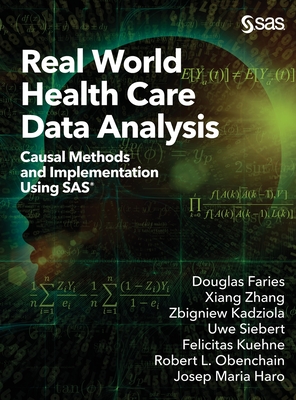Causal Inference in Python: Applying Causal Inference in the Tech Industry (Paperback)
暫譯: Python中的因果推斷:在科技產業中應用因果推斷(平裝本)
Facure, Matheus
- 出版商: O'Reilly
- 出版日期: 2023-08-22
- 定價: $2,650
- 售價: 9.0 折 $2,385
- 語言: 英文
- 頁數: 394
- 裝訂: Quality Paper - also called trade paper
- ISBN: 1098140257
- ISBN-13: 9781098140250
-
相關分類:
Python
-
相關翻譯:
因果推論的商業應用:用 Python 解鎖科技產業的精準行銷 (Causal Inference in Python) (繁中版)
立即出貨
買這商品的人也買了...
-
 $1,000Advanced Digital Logic Design Using Verilog, State Machines, and Synthesis for FPGA's (Hardcover)
$1,000Advanced Digital Logic Design Using Verilog, State Machines, and Synthesis for FPGA's (Hardcover) -
 Advanced Chip Design, Practical Examples in Verilog (Paperback)
Advanced Chip Design, Practical Examples in Verilog (Paperback)$1,800$1,764 -
 預測工程師的遊戲:如何應用賽局理論,預測未來,做出最佳決策(The Predictioneer’s Game: Using the Logic of Brazen Self-Interest to See and Shape the Future)
預測工程師的遊戲:如何應用賽局理論,預測未來,做出最佳決策(The Predictioneer’s Game: Using the Logic of Brazen Self-Interest to See and Shape the Future)$390$308 -
 Applied Linear Regression, 4/e (Hardcover)
Applied Linear Regression, 4/e (Hardcover)$1,580$1,548 -
 Advanced R, 2/e (Paperback)
Advanced R, 2/e (Paperback)$2,920$2,774 -
 Introduction to Probability, 2/e (Hardcover)
Introduction to Probability, 2/e (Hardcover)$1,750$1,715 -
 Google Bigquery: The Definitive Guide: Data Warehousing, Analytics, and Machine Learning at Scale (Paperback)
Google Bigquery: The Definitive Guide: Data Warehousing, Analytics, and Machine Learning at Scale (Paperback)$2,233$2,115 -
 Introduction to Linear Regression Analysis, 6/e (Hardcover)
Introduction to Linear Regression Analysis, 6/e (Hardcover)$1,680$1,646 -
 An Introduction to Statistical Learning: With Applications in R, 2/e (Hardcover)
An Introduction to Statistical Learning: With Applications in R, 2/e (Hardcover)$4,070$3,867 -
 機器學習的統計基礎 : 深度學習背後的核心技術
機器學習的統計基礎 : 深度學習背後的核心技術$680$537 -
 Tidy Modeling with R: A Framework for Modeling in the Tidyverse (Paperback)
Tidy Modeling with R: A Framework for Modeling in the Tidyverse (Paperback)$2,090$1,980 -
 FPGA 可程式化邏輯設計實習:使用 Verilog HDL 與 Xilinx Vivado (第三版)(附範例光碟)
FPGA 可程式化邏輯設計實習:使用 Verilog HDL 與 Xilinx Vivado (第三版)(附範例光碟)$400$360 -
 Python for Finance Cookbook : Over 80 powerful recipes for effective financial data analysis, 2/e (Paperback)
Python for Finance Cookbook : Over 80 powerful recipes for effective financial data analysis, 2/e (Paperback)$1,800$1,710 -
 Linux 高性能網絡詳解:從 DPDK、RDMA 到 XDP
Linux 高性能網絡詳解:從 DPDK、RDMA 到 XDP$713$677 -
 $2,520R for Data Science: Import, Tidy, Transform, Visualize, and Model Data, 2/e (Paperback)
$2,520R for Data Science: Import, Tidy, Transform, Visualize, and Model Data, 2/e (Paperback) -
 Google Analytics 學習手冊 (Learning Google Analytics: Creating Business Impact and Driving Insights)
Google Analytics 學習手冊 (Learning Google Analytics: Creating Business Impact and Driving Insights)$680$537 -
 Introduction to Probability for Computing (Hardcover)
Introduction to Probability for Computing (Hardcover)$1,680$1,646 -
 Python 資料科學學習手冊, 2/e (Python Data Science Handbook: Essential Tools for Working with Data, 2/e)
Python 資料科學學習手冊, 2/e (Python Data Science Handbook: Essential Tools for Working with Data, 2/e)$980$774 -
 高效 C/C++ 調試
高效 C/C++ 調試$594$564 -
 R 資料科學, 2/e (R for Data Science: Import, Tidy, Transform, Visualize, and Model Data, 2/e)
R 資料科學, 2/e (R for Data Science: Import, Tidy, Transform, Visualize, and Model Data, 2/e)$980$774 -
 Veridical Data Science: The Practice of Responsible Data Analysis and Decision Making (Hardcover)
Veridical Data Science: The Practice of Responsible Data Analysis and Decision Making (Hardcover)$2,160$2,117 -
 軟體開發者職涯應變手冊|穿越職涯迷霧的絕佳導航 (The Software Developer's Career Handbook: A Guide to Navigating the Unpredictable)
軟體開發者職涯應變手冊|穿越職涯迷霧的絕佳導航 (The Software Developer's Career Handbook: A Guide to Navigating the Unpredictable)$720$569 -
 高級 HDL 綜合和 SoC 原型設計
高級 HDL 綜合和 SoC 原型設計$468$445 -
 軟件系統優化
軟件系統優化$534$507 -
 AI 工程|從基礎模型建構應用 (AI Engineering : Building Applications with Foundation Models)
AI 工程|從基礎模型建構應用 (AI Engineering : Building Applications with Foundation Models)$1,200$948
相關主題
商品描述
How many buyers will an additional dollar of online marketing bring in? Which customers will only buy when given a discount coupon? How do you establish an optimal pricing strategy? The best way to determine how the levers at our disposal affect the business metrics we want to drive is through causal inference.
In this book, author Matheus Facure, senior data scientist at Nubank, explains the largely untapped potential of causal inference for estimating impacts and effects. Managers, data scientists, and business analysts will learn classical causal inference methods like randomized control trials (A/B tests), linear regression, propensity score, synthetic controls, and difference-in-differences. Each method is accompanied by an application in the industry to serve as a grounding example.
With this book, you will:
- Learn how to use basic concepts of causal inference
- Frame a business problem as a causal inference problem
- Understand how bias gets in the way of causal inference
- Learn how causal effects can differ from person to person
- Use repeated observations of the same customers across time to adjust for biases
- Understand how causal effects differ across geographic locations
- Examine noncompliance bias and effect dilution
商品描述(中文翻譯)
如何評估額外一美元的線上行銷能帶來多少買家?哪些顧客只有在獲得折扣券時才會購買?如何建立最佳的定價策略?確定我們手中可用的槓桿如何影響我們想要推動的商業指標的最佳方法是透過因果推斷。
在這本書中,作者 Matheus Facure,Nubank 的資深數據科學家,解釋了因果推斷在估算影響和效果方面的潛力尚未被充分利用。經理、數據科學家和商業分析師將學習經典的因果推斷方法,如隨機對照試驗(A/B 測試)、線性回歸、傾向分數、合成控制和差異中的差異。每種方法都附有行業中的應用作為實例。
透過這本書,您將能夠:
- 學習如何使用因果推斷的基本概念
- 將商業問題框架化為因果推斷問題
- 理解偏差如何妨礙因果推斷
- 學習因果效果如何因人而異
- 使用同一顧客在不同時間的重複觀察來調整偏差
- 理解因果效果在不同地理位置的差異
- 檢視不合規偏差和效果稀釋












